Pattons Last Gamble
General George S. Patton, Jr. Patton Papers, Library of Congress
Pattons Last Gamble
The Disastrous Raid on POW Camp Hammelburg in World War II
Duane Schultz

Guilford, Connecticut
Published by Stackpole Books
An imprint of Globe Pequot
Trade Division of The Rowman & Littlefield Publishing Group, Inc.
4501 Forbes Boulevard, Suite 200, Lanham, Maryland 20706
Distributed by NATIONAL BOOK NETWORK
800-462-6420
Copyright 2018 by Duane Schultz
All rights reserved. No part of this book may be reproduced in any form or by any electronic or mechanical means, including information storage and retrieval systems, without written permission from the publisher, except by a reviewer who may quote passages in a review.
British Library Cataloguing in Publication Information Available
Library of Congress Cataloging-in-Publication Data
ISBN 978-0-8117-1990-2 (hardcover)
ISBN 978-0-8117-6595-4 (e-book)
 The paper used in this publication meets the minimum requirements of American National Standard for Information SciencesPermanence of Paper for Printed Library Materials, ANSI/NISO Z39.48-1992.
The paper used in this publication meets the minimum requirements of American National Standard for Information SciencesPermanence of Paper for Printed Library Materials, ANSI/NISO Z39.48-1992.
Printed in the United States of America
Pattons raid on Hammelburg was the most controversial military decision of his career, and one that many would argue ranked as his worst.
Carlo DEste, Patton: A Genius for War
Pattons mission began as a wild goose chase and ended as a tragedy.
General Omar Bradley
This mission doesnt have a chance and we both know it. If this task force does make it back, itll be a miracle.
Colonel Creighton Abrams
From start to finish, the whole exercise was a tragic fiasco. It would certainly have cost Patton his career had it not been quickly covered up and its survivors sworn to silence.
Alex Kershaw, The Longest Winter:The Battle of the Bulge
American tank crashes fence to the cheers of Allied prisoners as task force drives deep into enemy territory to liberate POWs at Hammelburg. US Army Signal Corps, National Archives (SC387230)
Tank forces liberate Army officers from Hammelburg prison camp. US Army Signal Corps, National Archives (SC387232)
Chapter 2
One Last Chance to Be a Hero
George Patton was used to getting his own way from his childhood on. And what a way it was. When I was a little boy at home, he wrote years later, I used to wear a wooden sword and say to myself, George S. Patton, Jr., Lieutenant General. While there were some missteps and setbacks along the way, mostly of his own making, and times when he was sure his career was over, he eventually got his three stars and became a lieutenant general. Then he went beyond his childhood dream and got the fourth star of a full general.
I must be the happiest boy in the world, Patton thought to himself as a child. When looking back as an adult, he confirmed, I was probably right. He was born in 1885, on November 11, the date on which the First World War would later end, to very wealthy parents in southern California. Their sole mission in life seemed to be to spoil him and to never punish or chastise him in any way for anything he did. And they were not the only ones to do so.
His mothers sister, Annie, who had been desperately in love with Pattons father, moved in with them and became Aunt Nannie to baby George, whom she always referred to as her boy. She completely dominated the Patton household. Her nephew could do no wrong, and in her quiet but controlling way she forbade any sort of criticism of Georgie, according to Carlo DEste.
Aunt Nannie, and his mother, even moved to West Point for the five years he was a cadet (having failed his first year) to make sure they were available in case he needed anything. No wonder he became used to being the center of attention, a role he constantly needed to re-create for the rest of his life.
Sigmund Freud, the father of psychoanalysis, who was also the center of attention as a boy in his home, wrote, A man who has been the indisputable favorite of his mother keeps for life the feeling of a conqueror, that confidence of success that often induces real success. And Patton had essentially two mothers to make sure he was always the center of attention. But when that role was threatened, no matter the source, or how old he was, he became intensely surly, angry, and depressed.
At the age of twenty-six, for example, he found it very hard to come second when his wife, Beatrice, had their first child, called Beatrice and nicknamed Little Bee. Suddenly, he was no longer the focus. His wife had to devote more time to the baby than to him, and he felt lost, jealous, and resentful of the child who, to make matters worse, was a girl and not the boy he had hoped for. He expressed his feelings in a letter to his beloved Aunt Nannie. The accursed infant has black hair is very ugly and is said by some dastardly people to resemble me which it does not because it is ugly.
He eventually had a son, but only after another daughter was born. He never got along very well with his daughters, whom he resented for not being boys as well as for taking time and attention away from him. After one of them misbehaved, he asked his wife in front of them, How did such a beautiful woman like yourself ever have two such ugly daughters?
In an interview in 1985, his son, who was by then a general himself in the army, and daughter Ruth Ellen recalled how scared to death of him they had been as children. Even as late as 2004, at the age of eighty-nine, Ruth Ellen wrote that as a child, I thought he was an ogre. Everything I did was wrong.
He was a strict disciplinarian with them. He once tried to teach the girls how to play tennis, behaving as though they were privates in the army going through basic training. They both vowed to each other that they would never play tennis again. When observing one daughter ride a horse, he yelled at her to get off so he could show her how it was done. As he rode off, she said, Dear God, please let that son of a bitch break his neck.

Patton had grown up not only extremely spoiled and well looked after, but also very rich, and his father had no hesitation in giving the boy anything and everything he wanted, including two horses of his own when he was ten years old and a sailboat built for him when he was thirteen. The family lived a life of luxury, which Patton was able to maintain for the rest of his days.
In 1910, a year after he graduated from West Point, he married Beatrice Ayer, from a prominent New England family even wealthier than the Patton family, and they too were extremely generous with their money to George and Bea for the rest of their lives. Before the wedding, Beatrices father wrote to him, saying, From now on Ill take care of making the money. You take care of winning the glory.
Next page
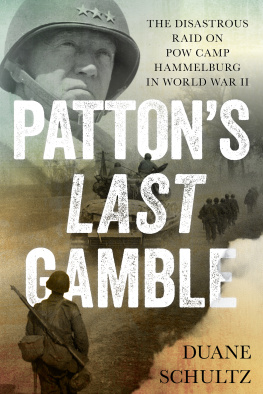
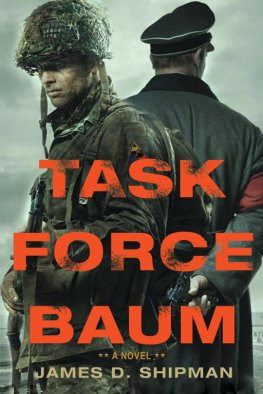

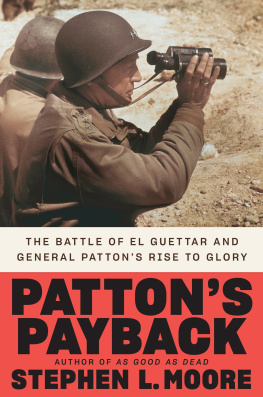
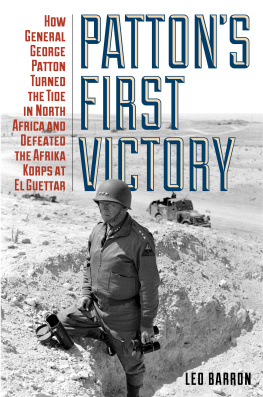

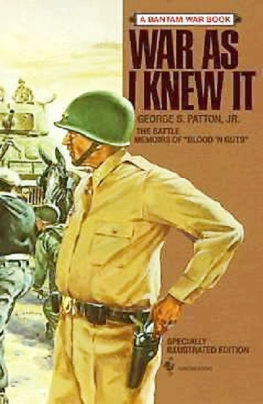
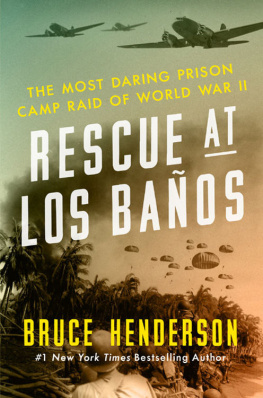



 The paper used in this publication meets the minimum requirements of American National Standard for Information SciencesPermanence of Paper for Printed Library Materials, ANSI/NISO Z39.48-1992.
The paper used in this publication meets the minimum requirements of American National Standard for Information SciencesPermanence of Paper for Printed Library Materials, ANSI/NISO Z39.48-1992.


